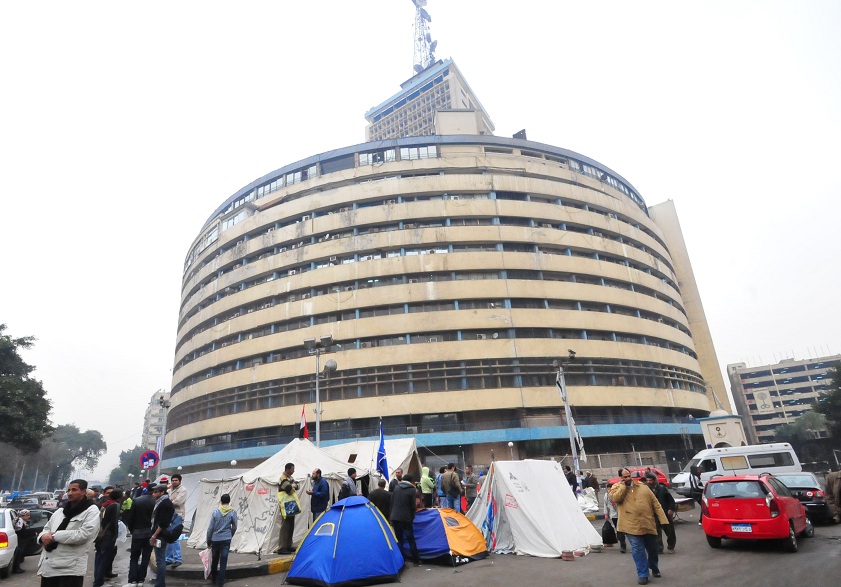
(AFP File Photo)
Curfew hours in Al-Arish, Rafah and Sheikh Zuweid come as Sinai’s economy is in recession, financial damages increase and unemployment is high, the Al-Dostour Party said in a press statement Monday.
Al-Dostour Party objected to the government’s Sunday decision to extend curfew hours in North Sinai for an additional three months, from its original end on 25 January, until 25 April. The party warned of residents’ inconvenience with the situation and emphasising their suffering from security and economic circumstances.
North Sinai has been under a state of emergency due to security conditions and ongoing armed conflicts between the army and terrorist groups, namely the ‘State of Sinai’.
“For more than year, the war on terrorism that has brought severe human losses of civilians killed by mistake and a degradation in the living conditions magnified by the border evacuation process,” Al-Dostour Party said. “Although the residents have put up with the circumstances, the government has failed to properly compensate them and North Sinai remains isolated from the rest of Egypt.”
Al-Dostour, Al-Wafd, Al-Karamah, Al-Islah Wal Tanmeya, and Misr Baladi parties held a meeting Monday, in which they contested the government’s negligence of residents’ needs. They were also demanding the reform of security measures in a manner that would loosen restrictions on citizens.
“If the government fails to respond to our demands, there is a possibility that we will boycott parliamentary elections and call for an open strike for all the residents of North Sinai against this unfair decision,” Secretary-General of Al-Karamah Party in and leading community member in Al-Arish Sheikh Khaled Arafat told Daily News Egypt.
In a phone interview, Arafat said: “We will close all stores down and abstain from working.”
Arafat said that state practices against the residents were unacceptable. “Residents are treated badly, they can barely leave town or use the roads due to safety problems, demeaning arrests and searching for suspicion of terrorism.”
Additionally, the government had decided to evacuate the border area with Gaza to establish a protective buffer zone aimed at destroying and preventing all underground smuggling tunnels connecting Egypt to the Gaza Strip.
The decision came following a heavy attack on the army which claimed the lives of at least 33 soldiers. Sinai-based militant group terrorist group ‘State of Sinai’, previously called Ansar Beit Al-Maqdis, took responsibility for the attack.
Last November, President Abdel Fattah Al-Sisi said that more security and logistical measures are to be taken to evacuate the area around the Egypt-Gaza border. Although he promised the displaced North Sinai families valuable compensation, but Arafat said some were compensated and others not. “But are they going to compensate my entire life, history and bloodshed?” he asked.
Human rights groups said residents were being forcefully displaced and mistreated.
“Shocking scenes have emerged of homes in Rafah being bulldozed, bombed, with entire buildings reduced to piles of rubble and families forcibly evicted,” said Hassiba Hadj Sahraoui, Amnesty International’s Deputy Director for the Middle East and North Africa.
The Social Development Council, a presidential advisory council, sat with tribal elders in Rafah. The group said in November that compensation promised for the evacuees must be revised and the heritage of the area safeguarded during military operations, according to state-run newspaper Al-Ahram.
“The sons of Sinai have always had patriotism and defended the land in the face of Israel and others, but the Egyptian state keeps failing to integrate us as part of the country,” Arafa said. “We will meet again in two days to decide on the following step.”



